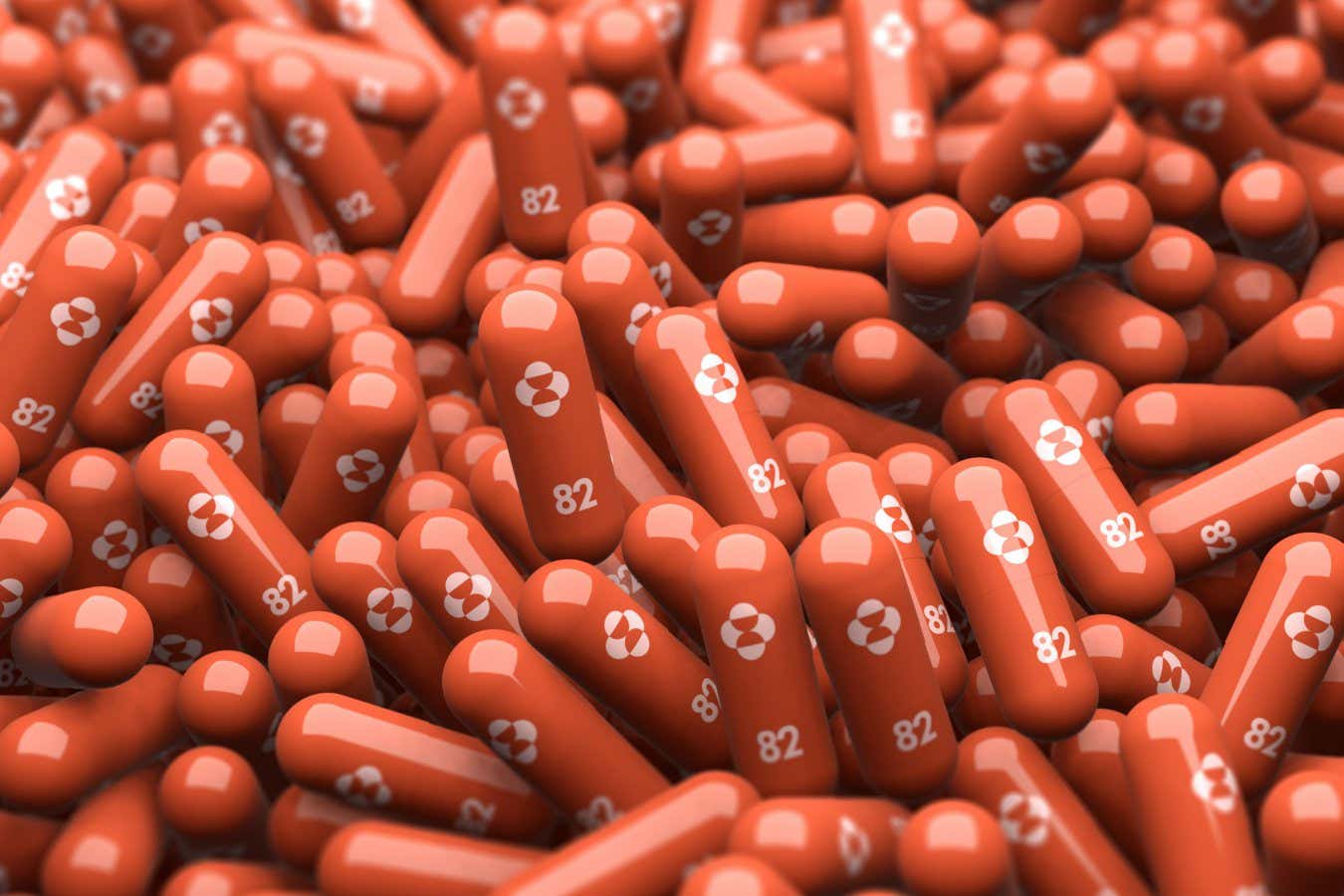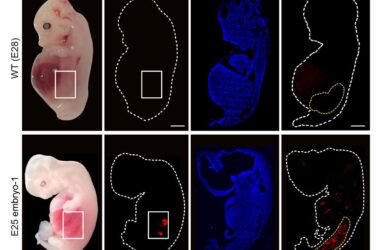A drug used to treat covid-19 called molnupiravir is believed to be driving the evolution of the SARS-CoV-2 coronavirus, according to an analysis of 15 million viruses sequenced globally. The analysis identified around 900 viruses with specific patterns of mutation that likely originated from people undergoing treatment with molnupiravir. While there have been a few cases where these mutated viruses have spread to others, they do not belong to any variants of concern.
Molnupiravir works by inducing numerous mutations in RNA viruses, including SARS-CoV-2, which prevents their replication and leads to their eventual elimination. However, there is a risk of these mutated viruses spreading to other individuals before they are completely eradicated from the body.
Some biologists are concerned that the potential generation of dangerous new variants by these mutagenic drugs outweighs their benefits. Animal studies have shown that molnupiravir may also cause DNA mutations, which is why it is not administered during pregnancy or to individuals trying to conceive or breastfeeding.
Despite these concerns, regulatory agencies in various countries, such as the US and UK, have approved the use of molnupiravir for treating covid-19.
In an analysis conducted by Theo Sanderson at the Francis Crick Institute in London, it was found that molnupiravir induces distinct types of mutation in the genomes of RNA viruses. Countries that started using the drug in 2022 witnessed an increase in the number of viruses with these characteristic changes. The study also revealed that, out of the sequenced viruses in the UK, 31% of the variants with the distinct mutation pattern came from individuals treated with the drug, compared to only 0.04% from the overall sequenced viruses.
Although it is expected that molnupiravir will mutate the viruses in treated individuals, the extent to which these mutated viruses spread to others remains unclear. Sanderson and his colleagues identified a few clusters, including one in Australia, where the spread from person to person seemed evident.
However, the potential risk of generating dangerous new variants remains uncertain. The analysis conducted by Sanderson’s team provides evidence that treatment might generate more new mutations in the population compared to non-treatment. Martin Nowak at Harvard University raises the question of whether treatment leads to a higher mutation rate in the population than non-treatment. Nowak’s recent study suggests that the answer to this question is negative.
A spokesperson for the company Merck, the manufacturer of molnupiravir, dismisses the study’s findings as based on circumstantial associations and assumptions. The US Food and Drug Administration (FDA) also highlights uncertainties and states that a causal relationship between molnupiravir use and the generation of new mutations in SARS-CoV-2 has not been established.
It is important to note that the potential for treatments to trigger the evolution of new variants is not limited to mutagenic drugs like molnupiravir. Conventional drugs and antibodies can also exert selective pressure on viruses to evolve and evade treatment. Therefore, this study does not alter the overall risk assessment by the FDA.
Overall, while molnupiravir has shown effectiveness in treating covid-19, its potential to drive the evolution of new variants raises concerns that need further examination.








